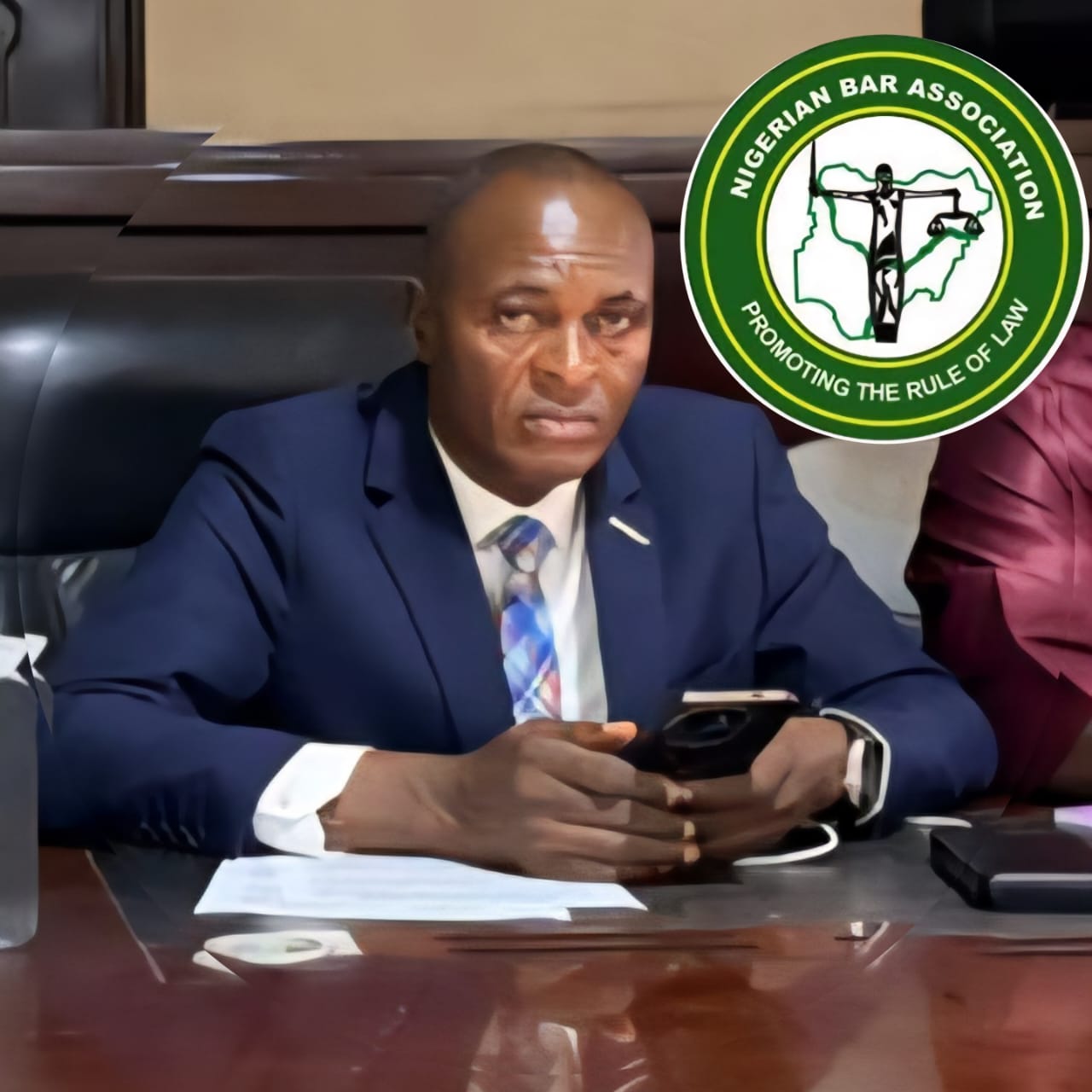Mary Akanbi
18th July, 2025
By Dr Emeka Okeke

I read with concern the article articulated by James Osaramen, Esq, titled: “Unizik: What is the legal limit of an Acting Vice-Chancellorship?” In the article the learned counsel, relying on the provision of section 5(14) of the Universities (Miscellaneous Provisions) (amendment) Act 2003 (“Universities Act”) which provides that: “An acting VC in all circumstances shall not be in office for more than six months.” posited very elegantly that, Prof. Carol Arinze-Umobi, the current Acting Vice-Chancellor of Nnamdi Azikiwe University, Awka (“Unizik”), having previously served in an acting capacity for a period of 3 months before Prof. Joseph Odo, whose tenure was disrupted by executive fiat, was appointed as substantive Vice Chancellor, Prof. Umobi’s current stint as Acting Vice Chancellor must lapse after a further 3 months. According to the legal commentator, the provision in section 5(14) underlined above did not leave any room for conjecture or permutations because it is absolute, unambiguous, prohibitive and mandatory.
Notwithstanding the allure of that argument, it is anomalous. Indeed, in this author’s diagnosis of the malady in that opinion, it was found that it stemmed from the confusion of an acting capacity in office and a tenure of office. This error is inferable from the author’s words as follows: “The pertinent question now is: how many months does Prof. Carol Umobi have left? The law, as it stands, is unequivocal – no acting vice-chancellor shall serve for more than six months under any circumstance. Her current reappointment, following a previous three-month stint before being replaced by a substantive vice-chancellor, cannot be regarded as a fresh term. It is in terms, a continuation of her earlier appointment. Consequently, her cumulative tenure must not exceed six months. Those who support a fresh six-month appointment often forget that Prof. Umobi was not removed arbitrarily and was also first appointed by the Council. Her tenure ended naturally with the appointment of a substantive vice-chancellor, a situation fully contemplated by the law…the tenure of an acting vice-chancellor is not a political matter; it is a statutory one.” (emphasis mine).
The underlined parts of the opinion of the learned author clearly shows the author’s conclusion that Prof. Umobi had a term or a tenure, and therefore she may be precluded from holding the same position in the future. It is this writer’s view that, if our learned friend did not treat a period of being in an acting capacity in the office as being the same with a term or tenure, our learned friend would not have arrived at such a conclusion.
This brings us to the question of what is the difference between a tenure of office and being in an acting capacity in office. A tenure in simple term is a period of time which a person holding a substantive position is guaranteed, permitted or allotted to spend in a particular office by law or other governing document, unless there is an intervening situation (like removal, resignation or death) also recognized by that law or governing document. This is why in simple terms; we often say that such a person’s tenure has expired. But a person holding an office in an acting capacity, does not have a tenure, the person’s position can be terminated at any time the substantive position is filled. Section 11(2) of the Interpretation Act, Cap. I23, Laws of the Federation of Nigeria, 2004 describes a person in an office in an acting capacity as a person appointed to act in place of a substantive office holder “for the time being”. In this regard, even though, section 5(14) of the Universities Act sets a maximum period of 6 months for “an” acting vice chancellor to be in office, it does not say that the period to be spent by such person in office cannot be terminated forthwith notwithstanding whether such person has spent up to 6 months in office or not. An acting vice-chancellor will most likely not head to court to ventilate a claim that he or she was wrongfully removed before 6 months, such a claim will be unnatural. This is why this writer submits that section 5(14) did not create a tenure.
In addition, a study of the grundnorm, which is the Constitution of the Federal Republic of Nigeria, 1999 (as amended) (“1999 Constitution”), and indeed all other statutes that create statutory positions attended by tenures or terms, will reveal that it is only when a tenure or term is created that a person may be precluded from holding an office after having held same, whether once or twice.
It is pertinent to consider the words often used for such preclusion. For instance, section 137(1) of the 1999 Constitution provides that: “A person shall not be qualified for election to the office of President if- (b) he has been elected to such office at any two previous elections.” Section 182(1)(b) of the same constitution has the same provision in relation to the preclusion of a person who has held office as a governor. Similarly, section 3(1) of the Companies and Allied Matters Act, 2020, titled “Tenure of office and vacancy on the Board” provides as follows: “Subject to the provisions of subsection (2), a person appointed as a member of the Board (not being an ex-officio member) shall hold office for a term of three years and may be eligible for re-appointment for one further term of three years and no more.”
We have underlined the word “a person” for emphasis, and to show that any such preclusion must be established with a specific word. Again, a comparison of the terms used in section 5(14) of the Universities Act and that used in all other statutes of the same effect cited above will prove this point unassailably. In section 5(14), the word used is “an acting vice chancellor”. If a preclusion was intended, the term used would have been “a person”. Where the law denies a right, such denial must be express, and without any need for conjecture. See the case of Jegede v. INEC (2021) 14 NWLR (Pt. 1797) 409 S.C. where the supreme court interpreted section 183 of the 1999 Constitution as applying to only a person who has held the office of a governor only and none other.
As such, it is an erroneous argument to relate back the previous period which Prof. Umobi spent in office as an acting vice chancellor and compound or conflate same with her current stint as acting vice chancellor. The learned counsel would probably not have made his argument, if he understood section 5(14) of the Universities (Miscellaneous Provisions) (amendment) Act 2003 from the standpoint that each stint as acting VC has a life of its own. If learned counsel, Osaramen was relying on the doctrine of relation back, this author’s reply is that that is a wrong use of that lofty doctrine. And doing so would amount to creating a tenure when the law had created none.
Accordingly, 3 inferences may be correctly drawn from section 5(14) of the Universities Act, (a) first, section 5(14) does not support the relation back of both periods that Prof. Umobi has held office, (b) second, it does not preclude Prof. Umobi from acting in an acting vice chancellor capacity for more than once, provided that each stint is for a consecutive period not exceeding 6 months, and (c) any university in the process of replacing a substantive vice-chancellor that has appointed an acting vice chancellor to act for the time being must commence and conclude the period of recruitment of a new vice-chancellor and his/her eventual inauguration within 6 months of the appointment of the acting vice-chancellor, whoever he or she is. This is the natural interpretation because no such preclusion has been expressed in the Universities Act, and section 5(14) of the Universities Act did not create a term or a tenure.
Granted, in line with inference (c) above, we may concede that, based on section 5(14) of the Universities Act, no acting vice-chancellor can stay in office for more than 6 months within a consecutive period. But that is all the section provides and nothing near the effect our learned counsel has smeared it with. Everyone appointed to be in office in an acting capacity must have a stipulated length of time to avoid abuse, but because the person occupying office in an acting capacity is just that-acting in a capacity-there is no preclusion to the person from being again whether in an acting capacity or in a substantive capacity.
It is true that whenever we are dealing with novel legal situations, lots of fancy arguments and legal positions are usually advanced by commentators pathetic to either side of any affected divides (the same scenario played out when Walter Onnoghen, CJN’s, as he then was, period of 3 months as acting CJN was nearing its end), but ultimately, the real intent of the law is always clear. And in this case, we have been able to resolve those arguments by demonstrating that the argument against the continuation of Prof. Umobi for a consecutive period of 6 months at least in her second stint as acting vice chancellor, unless interrupted by the appointment of a substantive vice-chancellor, has proceeded from the wrong premise that the position of acting vice chancellor is a tenure.
Dr Emeke Okeke writes from Awka.



